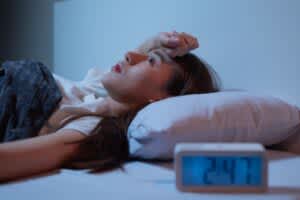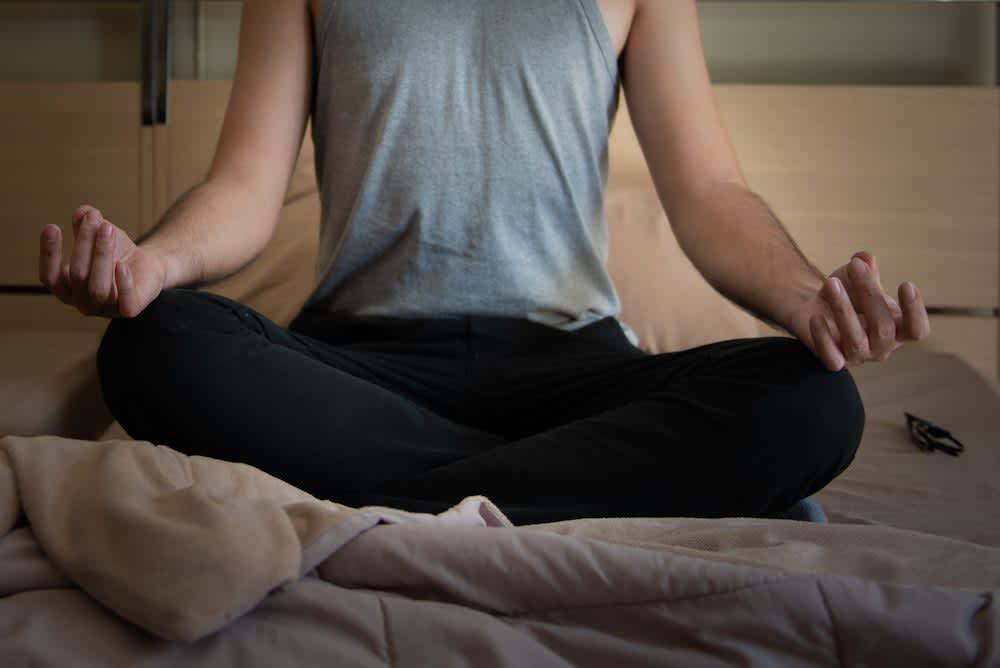Daydreaming is common and normal. It is considered an adaptive behavior, meaning it helps people adjust appropriately to their environment. However, it is possible to daydream to such an extent that it becomes a problem. Unlike adaptive daydreaming, maladaptive daydreaming worsens psychological distress rather than helping people cope.
Maladaptive daydreaming involves getting absorbed in fantasies that interfere with daily life due to their constant, vivid, and immersive nature. Maladaptive daydreaming is gaining more attention from researchers but is not currently a recognized mental health condition.
What Happens During Maladaptive Daydreaming?
During maladaptive daydreaming, people are absorbed in vivid, sustained daydreams. Often, the fantasy world of maladaptive daydreaming is highly-structured and people may spend hours immersed in these fantasy worlds.
Research suggests that certain themes may appear more frequently during maladaptive daydreams, including violence, sex, romance, power, control, and wish fulfillment. In these daydreams, the daydreamers might be a more idealized form of themselves.
Daydreams may be highly pleasurable and can briefly improve a person’s mood, but people often feel distressed by how much daydreaming they are doing, and how little control they have over the content.
What Causes Maladaptive Daydreaming?
Research suggests that people who develop maladaptive daydreaming may have been imaginative during childhood. Later, they may encounter unpleasant realities and life stresses that promote a tendency to escape into fantasy.
Experts believe that maladaptive daydreaming may be a way of attempting to cope with stressful realities like loneliness. It is also associated with trauma or painful circumstances in childhood, although not everyone who develops maladaptive daydreaming experienced difficulties in childhood.
What Are the Symptoms of Maladaptive Daydreaming?
It is important to recognize that daydreaming, even vivid daydreaming, is not considered maladaptive if it does not interfere with a person’s ability to function in their daily life.
Unlike ordinary daydreaming, maladaptive daydreaming has an addictive quality. Daydreamers may spend hours every day in their fantasy worlds, which may generate feelings of guilt or shame. Yet people may feel unable to reduce or stop daydreaming.
People engaged in maladaptive daydreaming may engage in movements that correspond to the action in their fantasy world. These may include facial expressions, mouthing words, pacing, and hand shaking. People also report that daydreaming is triggered or sustained by music. It is common for people to listen to music and pace while they are engaged in daydreams.
How Are Maladaptive Daydreaming and Sleep Linked?
Since maladaptive dreaming is a new area of study, its relationship with sleep has not yet been thoroughly explored. Anecdotally, some people have stated that their maladaptive daydreaming interferes with their ability to sleep. Some people claim that the urge to daydream can be so strong that they forgo sleep so they have more time to daydream.
People with maladaptive daydreaming do often have mental health conditions that are associated with difficulties sleeping, such as:
- Anxiety
- Depression
- Obsessive-compulsive disorder (OCD)
- Attention deficit hyperactivity disorder (ADHD)
- Generalized anxiety disorder
Research has shown that poor sleep can make it more likely that the mind will wander the next day, making it harder to stay focused. However, there is not any strong evidence at this time that sleep deprivation or poor-quality sleep leads to maladaptive daydreaming.
Seeking Help for Maladaptive Daydreaming?
Mental health professionals, such as psychologists, psychiatrists, therapists, or clinical social workers, can assess a person’s mental health and recommend treatments for maladaptive daydreaming.
Since not all mental health professionals are familiar with maladaptive dreaming, it may be helpful to ask your primary care provider to refer you to a mental health professional with expertise in treating addictive or compulsive behaviors like maladaptive daydreaming.
Maladaptive Dreaming Test
A diagnostic tool known as the Maladaptive Daydreaming Scale (MDS-16) may be used to determine whether someone’s daydreaming can be categorized as maladaptive. This tool consists of 16 questions that can be used to help health professionals determine if a person is experiencing maladaptive dreaming.
The questions on the MDS-16 assess how closely a person’s daydreaming experiences match the typical qualities of maladaptive daydreaming. Questions cover a range of topics, including:
- If your daydream is interrupted, how strong is your urge to return to the daydream as quickly as possible?
- How often do you make facial expressions or sounds, like laughing or talking, during your daydreams?
- How much does your daydreaming interfere with the things that are most important to you?
- How often do physical movements like shaking your hands or pacing accompany your daydreams?
Health care providers may also use other tools, such as structured interviews, to assess for maladaptive dreaming.
How to Treat Maladaptive Dreaming
Maladaptive daydreaming is not an officially recognized diagnosis and as such, there is no standard course of treatment. However, if daydreaming is interfering with your life, you may benefit from seeking support and improving your sleep quality.
A small body of research has shown that drugs used to treat OCD may help with maladaptive daydreaming. However, more research into treatment is needed.
In other cases, people with maladaptive dreaming have benefited from cognitive behavioral therapy. This is a type of treatment in which a therapist helps an individual gain insight and overcome maladaptive beliefs and behaviors.
Seek Support
If you feel like your daydreaming is making it hard for you to cope with your responsibilities, it might help to reach out for help. People you might consider asking for help include:
- Your primary care provider
- A parent or other trusted adult
- A teacher or guidance counselor, if you are a student
- A rabbi, pastor, or other spiritual leader
- A crisis helpline
In addition, a number of online communities and support forums are available. These communities may provide peer support and information about how other people cope with the condition. Many people with maladaptive daydreaming appreciate knowing their condition is shared by others and is a subject of current research.
Get Sufficient Sleep
Maladaptive daydreaming may lead people to sleep loss, which can contribute to both physical and mental health challenges. Building better sleep habits has many benefits for your mental health. You can take a number of easy steps to improve your sleep habits, including:
- Stick to a consistent sleep schedule
- Create a quiet, dark sleep environment in your bedroom
- Avoid caffeine and alcohol close to bedtime
- Get some daytime exercise so you can fall asleep easier at night
References
Ask the Sleep Doctor
Have questions about sleep? Submit them here! We use your questions to help us decide topics for articles, videos, and newsletters. We try to answer as many questions as possible. You can also send us an email. Please note, we cannot provide specific medical advice, and always recommend you contact your doctor for any medical matters.





































